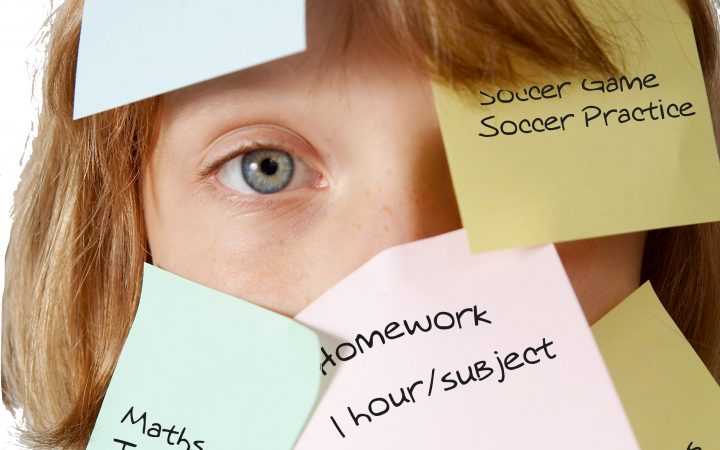Simplicity Parenting

In today’s busy life with too many choices and too little time, more and more children present with anxiety disorders, behavioural problems and an alarming rate of suicidal tendencies. Parents are often overwhelmed by their daily routine and there seems to be a profound disconnect between parent and child.
As parents, we try to do our best for our children. Our motivation is pure love; but in a society that is driven by competitiveness and status, showing love is often mistaken with providing our children with unsurpassed experiences. We live by the motto: “the more the better”.
We think that ‘free time’ needs to become “free to be filled time” with activities and entertainment. Add in an avalanche of information in the form of marketing messages, the speed of technology and the constant connectedness through the Internet, and we are heading for a disaster. 
Consequently, our children are given too many choices and too much stuff with the result that their lives and our lives become very cluttered. We have become people of “doings” rather than “beings”. In a world that promotes speed, children are being fast-tracked at the detriment of their childhood.
Rather than focusing on connecting with our children and building meaningful, long-lasting relationships, we have become anxious, hyper-involved parents. We have lost something that our parents had – the trust that out children will develop at their own pace.
The good news is that we can all step back from this craziness through slowing down the pace and simplifying our lives.
But why should we simplify our children’s lives?
Kim John Payne, international renowned family consultant, is the advocate and father of Simplicity Parenting, a movement that promotes the importance of a holistic childhood; a childhood where children’s minds, hearts and hands develop simultaneously.
Kim has worked extensively with children in refugee camps and with children from affluent upbringings.
His research found that children from affluent upbringings displayed the same symptoms of post-traumatic stress disorder as those in refugee camps.
Both groups of children presented with a lack of empathy, resilience and impulse control and also hyper-vigilance, nervousness, and anxiousness. Both groups of children exhibited a tendency to disruptive behaviour when exposed to small stresses.
Kim and his team discovered that when a sense of calm and rhythm was introduced in the lives of those children, their behavior pattern changed significantly.
Childhood is a unique time where children develop their own sense of self. In this significant phase, children find out who they are and what motivates, interests and drives them. It is a time where they discover their true self and deepen their awareness of the world they live in. In order to achieve this, children need to be given the time, space and security for this healthy development, for building resilience and their general well-being. We can create this space by simplifying the lives of our children and ours.
Simplifying means eliminating unnecessary clutter and creating more space for awareness, attentiveness, calm and connectedness.
Allowing our children to have regular downtime is vital for their healthy development. Children need to restore their bodies and souls by being given unstructured time to reflect upon their experiences. When we notice that our children are feeling overwhelmed, physically and emotionally, it is important to give them a ‘mental health day’ where they stay at home, take a break from after-school activities or have quiet weekend.
As parents we want to give our children opportunities that we never had with the hope that it will set them apart from the rest of the competitive flock. The result is that we ‘overschedule’ our children from a young age with too many extra-curricular activities.
Children need to be busy and thrive on activity, but this needs to be balanced with some ‘nothing to do’ time.
Too many activities, especially adult-directed ones, can dampen a child’s ability to motivate himself or herself and find their own interests. It is the ‘nothing time’ that enriches our children and not the enrichment classes as it allows children to just ‘dawdle’ without having to succumb to expectations or performance pressure.
Simplifying schedules can be as easy as keeping one afternoon a week free from any scheduled activities, eliminating one activity or having regular Sabbath moments where families set free time aside and balance their hectic schedules.

